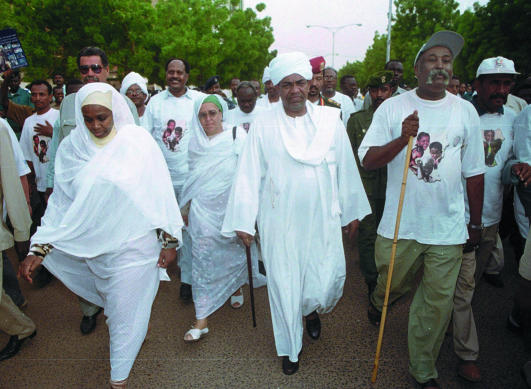A growing clampdown on the press is affecting public health campaigns in Sudan, just as a breakdown in peace talks dashed hopes of ending one of the world's most intractable civil wars.
On 11 September the campaigning group Human Rights Watch wrote to President Omar al Bashir, condemning the recent crackdown. The group said, “In the past week, following the government's withdrawal from peace talks in Nairobi with rebel forces, the governmental National Press Council has confiscated newspapers for publishing allegedly subversive articles and security forces have detained, harassed, and interrogated newspaper editors and journalists.”
“Subversion” includes criticism of the breakdown of the peace talks—“threatening the unity of the state”—and discussing female circumcision.
Sudan's AIDS campaigners complain of a lack of political commitment to public health education, as editors shy away from publishing stories that fall foul of the country's rigid obscenity laws, which also hamper the campaign against female genital mutilation.
“We are still waiting for the media to play its vital role in the AIDS control programme,” said Dr Ibrahim Mohamed Abdallah of the Sudan National AIDS Control Programme. Despite widespread popular participation in a national advocacy week, the campaign received virtually no press coverage.
“The fact that HIV/AIDS is primarily spread through sexual intercourse makes it a sensitive issue. This is a difficulty that people all around the world have had to confront. Here in Sudan we must ask how many people have to die and how many people have to get infected before we overcome this sensitivity,” said Unicef representative Thomas Ekvall at a football tournament launching the campaign.
Twenty years of civil war and the government's policies have provided fertile ground for a huge increase in HIV infection. Aid agencies claim that the civil war has created “the greatest humanitarian emergency on earth.”
The crackdown is also hampering the drive against female genital mutilation.
Human Rights Watch protested about this in its letter to the president. “On August 24, the official National Press Council suspended for one day the publication of another Khartoum newspaper, Al Ayam, after it published a piece on female genital mutilation reportedly still widely practised in Sudan although illegal. It is not possible to understand why this issue of Al Ayam should be suspended in view of the government's official position against female genital mutilation,” it said.
North Sudan has one of the world's highest incidences of female circumcision. A 1990 demographic and health survey found that 89% of married women had undergone some form of genital mutilation.
Campaigners accuse the government of encouraging the practice while gagging its critics. The National Press Council deemed the paper's coverage “a slur on public decency.” Omdurman Islamic University recently established a centre for training traditional birth attendants to perform the procedure.
On 22 May a workshop organised by the Ministry of Religious Affairs and Endowment was held at the university's centre for female students. The workshop recommended the legalisation of female circumcision, raising awareness of its “importance,” and supporting the efforts of the female student centre to establish centres all over the country.
The Sudanese Women's Rights Group warned: “FGM [female genital mutilation] causes not only physical and mental health problems, but can lead to death as serious infections often occur.
Figure.
AP PHOTO/ABDEL RAOUF
Human rights campaigners have protested to President Omar al Bashir (pictured above, centre) about his media crackdown



